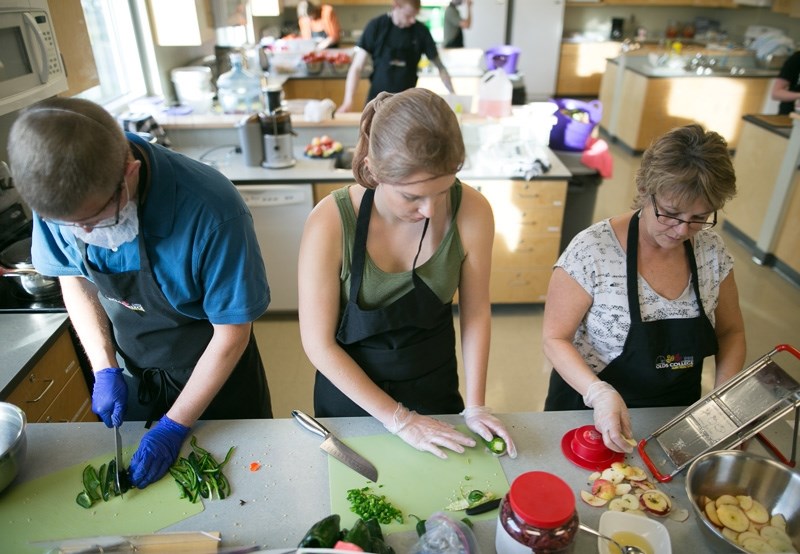It's been about two months since up to 500 pounds of vegetables were illegally harvested from the horticulture program's garden in September. While her second-year students are busy chopping peppers to make sriracha sauce, instructor Kim Wickwire is happy to leave the theft in the past.
Those vegetables were never recovered and Wickwire says she hopes the thieves did, in fact, need the food for sustenance. In 27 years of teaching at Olds College, she's never seen a theft to that extent.
Currently, she has 18 students who've just finished Week 2 of 3 in their food processing class, working in the Olds High School home ec room.
On Nov. 10, they were cooking sriracha, a type of sauce made from chili peppers – the red stuff often found at Vietnamese restaurants. Students were making three types: an original flavour with some red apple added, a green-coloured one that uses different variations of hot peppers, and a purple-coloured one that uses beets.
Wickwire smiles when asked to compare theirs with what's found in grocery stores.
"Ours are always better. We control the amount of sugars and any additives," she says. "We don't use any long words that you can't pronounce."
The students are creating all kinds of different products: pickles, juice, sauerkraut, jams and jellies, salsa and even lip balms.
There are a few reasons why they're learning skills like canning, pickling and fermentation.
For one, it's a lost art, Wickwire says. There was an era when somebody in the household would use those methods of home preserving. She wants to pass them on to students.
Those skills are also centuries old and transcend national boundaries. For example, while they might come from two different locations, at their core, sauerkraut and kimchi are both made using fermented cabbage. Thus, Wickwire says students are taught to market their products broadly, because there's a huge demographic that likes kimchi.
Finally, students learn to diversify their income source, she says. Unless you have a greenhouse, you're not producing anything on the farm in the winter. But being able to produce these goods gives them something to sell in the off-season.
Products made by horticulture students are being put on sale on Nov. 23 at the Land Sciences Building.
"Ours are always better. We control the amount of sugars and any additives," Wickwire says. "We don't use any long words that you can't pronounce."



